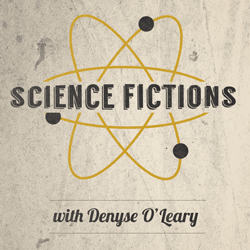What Has Materialism Done for Science? Introducing “Science Fictions”
Editor’s Note: ENV is very pleased to welcome our good friend Denyse O’Leary as a regular contributor who will write a new feature, “Science Fictions.”
 As a journalist who has covered the intelligent design controversy for 12 years, I ended up asking a question repeatedly (and invested most of my career researching it): What exactly has materialism done for science? It is promoted by many as the very fuel of science, but that turns out to be a fiction. In areas of great interest, such as the origin of the universe, life, humans, and the human mind, materialism in fact has been a major stumbling block.
As a journalist who has covered the intelligent design controversy for 12 years, I ended up asking a question repeatedly (and invested most of my career researching it): What exactly has materialism done for science? It is promoted by many as the very fuel of science, but that turns out to be a fiction. In areas of great interest, such as the origin of the universe, life, humans, and the human mind, materialism in fact has been a major stumbling block.
To see this clearly, one must wade through thousands of documents — glowing press releases, fatuous pop science journalism, serious and not-so-serious books and articles, and broadcasts, and distill the basic message clearly and simply.
Some readers might think they are unqualified to judge because they lack science training. Wait! The English Common Law system of justice is based on the jury principle, selecting 12 good and true. They are not asked to be experts but only to listen to experts and arrive at a specific, simple decision based on what they heard.
Would you like to be part of that jury? Check this space for a new series, starting next week, your regular dose of Science Fictions.
